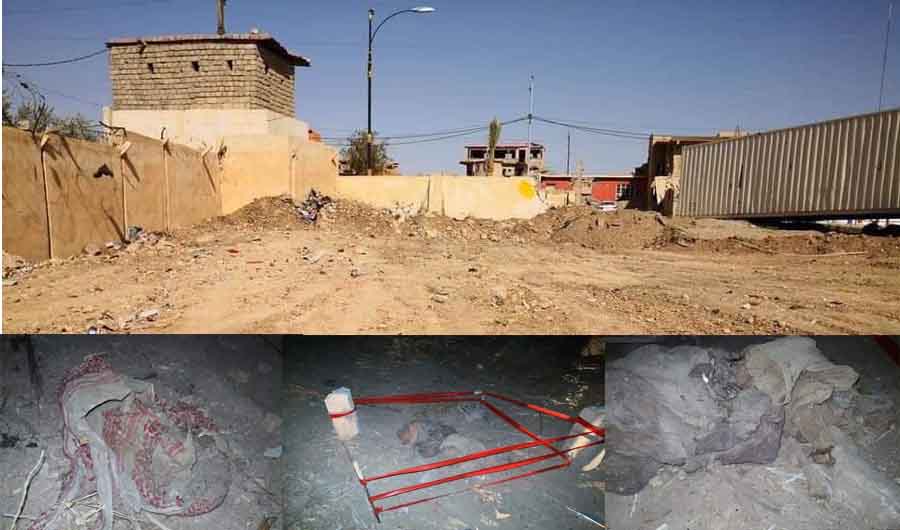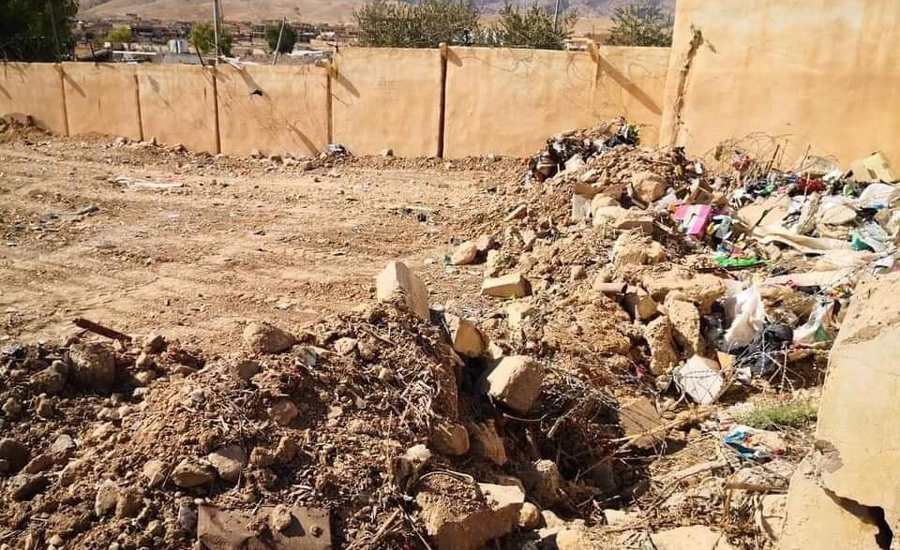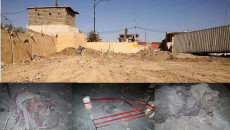The remains of about ten bodies were exhumed from a mass grave in Shingal which the Iraqi intelligence service leveled with land in July to be used as a car park.
On June 29th, a force affiliated with the "Iraqi Intelligence Service" leveled a plot of land in the middle of Shingal district, containing the remains of six to ten people whose murder dates back to the reign of Islamic State in Iraq and Levant ISIL between 2014 and 2015 with the aim of converting them into a car garage.
The bulldozers revealed the bones and clothes of some of the victims, a step which sparked the discontent and indignation of the war-torn Ezidi community.
Khairy Ali, director of the Yazidi Organization for Documentation said after intense pressure from organizations, religious figures and the people of the region, a team from the Department of Mass Graves arrived at the mass grave site on November 16th and collected the remains in a proper and legal way.
"The remains of all the victims to be transferred to Baghdad forensic medicine for the purpose of conducting examinations to identify the identities," Ali added.
The remains of all the victims to be transferred to Baghdad forensic medicine
"The case has been resolved now and no one is complaining about anything, but it is not clear when the examinations will be conducted in Baghdad and when they will be completed," Khairi concluded.
"Whenever the examinations are completed in Baghdad, we will return the remains to Shingal in preparation for re-burial."
On June 29th, a unit of Iraqi intelligence based in Shingal, 120 km west of Mosul, has leveled the plot of land next to its headquarter in order to use it as a car park which has sparked wide protests among the Ezidi community since the site was a mass grave of Ezidis documented by a civil society organization for documentation of the atrocities against the Ezidi community.
The site is located between Shingal police and Iraqi intelligence office in the district of Shingal, home to the Ezidi ethno-religious minority in Mosul center of Ninewa province.
Shingal, on the border of Iraq-Syria, is home to hundreds of thousands of the Ezidi community targeted by Islamic State in Iraq and Levant ISIL in August 2014 and one of the disputed territories between Baghdad and Erbil.
Seized in August 2014 by ISIS militants whom accused the Ezidis of being “heretics,” Shingal has been the scene of tragedy: a genocidal campaign of killings, rape, abductions and enslavement, amounted to genocide.
"The remains of the victims were removed by a team of 10 people, what they did was very important," said Natiq Ahmed Alo, medis officer of Shingal police.

The site of the mass grave on July 30th, by KirkukNow, flattened by Iraqi intelligence on June 29th, 2021 to be used as a car park while the rest are photos shared with KirkukNow for the mass grave documented by The Ezidi Organization for Documentation in August 2021.
In Mid July, the civil administration and organizations of Shingal in Mosul stop the process of moving remnants of Ezidis in a mass grave to be held in plastic bags into morgue.
On June 30, a high-ranking Yazidi delegation that included a number of clerics and notables in the region visited the headquarters of the Iraqi intelligence service and informed them of the Yazidis' protest against what they had done, but the intelligence service confirmed that they were not aware of the existence of that mass grave.
Shingal is home to 82 mass graves and tens of individual graves for Ezidis slaughtered at the hands of the extremist militants of IS.
On March 15, 2019, the first mass grave for the Eizidi victims was unearthed in the village of Kojo where 364 bodies were collected from 17 mass graves, official records of Iraqi national team for mass graves said.






